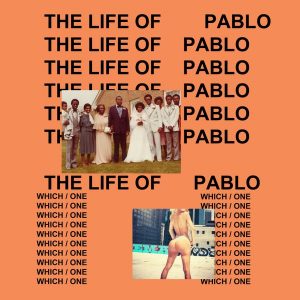Brogan: Modernity in hip-hop: Kanye West
January 20, 2017
When contemplating the work of Aristotle, Plato and Hippocrates and how their work popularized the early scientific method, it is interesting to consider the vast array of genres that that work has impacted in modern day society.
Consider the social sciences; our understanding of group behavior is rooted in statistics and data gathering. For example, many American tax-subsidized think tanks are interested in specific data, such as high school public school graduation rates, or as community data, such as the percentage of racial diversity within neighborhoods. This data then goes on to guide policy decisions.
The imposition of significance on statistical data isn’t a natural function of the human mind but a mediated reality of modern cultural existence. Statistical modes of inquiry weren’t birthed unknowingly from the internet age, but are a result of centuries of at times deliberate—at times unknown—cultural evolution of the western mind.
The rational deduction and systemic understanding of the natural and social world that was written and preserved during antiquity reaches out like a tentacle into all facets of modernity. Its limit is not to the publication of scientific literature, but is also apparent in the world of art. Music, specifically pop and rap, has also been influenced by the evolution of western conceptions.
Kanye West: “The Life of Pablo”
Kanye West is an icon of modern fame in the internet age. One of the stand-out hits of the album “Life of Pablo” is the song “Famous,” which highlights the peculiarity of fame in a time of instant and constant social media presence. The music video includes several celebrities in bed naked together, including Donald Trump.
Although there are many possible considerations of a western mentality in this album that can be traced back to antique concepts, perhaps the most visually iconic representation is the album cover itself. It conforms to both statistics and the denial of any originality, while at the same time denying westernization as it references itself.
The ambiguity of the name Pablo is at first striking; does it reference Pablo Escobar or Pablo Picasso? St. Paul? Perhaps in pursuit of fame and a household name, they don’t represent different symbols at all, but synonymous icons of fame.
Also interesting is the repetition of the album title and WHICH / ONE. They suggest a printing press; a repeatedly shared news story on Facebook; an Amazon.com, Inc. mechanized arm in a warehouse repeating an action indefinitely.
The repetitions in the album cover references the reality of consumerism and the lack of an origin. There is no cross that Jesus died on, but a cross necklace is available for only $20 on the mass production line to order at Amazon.com. Likewise, there’s no singular “Life of Pablo,” but there is a mass-produced product for only $20.
In this way, the album’s own reference to its consumerism—that it’s a product—likewise signifies an ambiguity; there is a deep desire for authenticity within the suffocation of media fame, even with an awareness that its value doesn’t exist standing alone, but only as a vast replication to be distributed in bulk.
The album’s understanding of its value is the result of an awareness that it’s being marketed to specific demographics. Marketing to demographics is a conceptual and organizational understanding of a consumer market founded on scientific and Aristotelian understandings of society. Pop music, and its desire to hyper-target markets, views society as factions and groups to target with specific desires.
West is particularly interesting because of of the way he balances his awareness of consumerism as defined by pop music with his struggle against the exploitation of artistic creation by the masses and his desire to present himself authentically. This is made apparent by the two pictures: a wedding picture of a black family and a white woman close to naked. Similar to the binary conceptualization of body and soul outlined by Plato and Aristotle, West is asking the same old question: body or soul? Are these conceptualizations reality or the product of western evolution well beyond an individual?
By conforming to binary standards and accepting fame, West subscribes to a western mentality within the statistical consumerism of western and binary models of life while also criticizing and exploiting them.
His hyper-awareness of his position as a pivotal and controversial figure speaks to St. Pablo as a reference to Saint Paul. The ambiguity of the album title’s reference is fitting for the ultimate reality of modernity: The facts of statistical science aren’t reality, they’re conceptualizations. Furthermore, the pulling of the carpet on the masses can lead to either a crucifixion of status or perhaps the epitome of fame.
It’s all mathematics; the dehumanization of the original, and in replacement figures and markets in a modern capitalistic structured society. Whether or not this is too strong a conceptualization of modernity is a valid question, but the attempt to organize culture and society as factions is less controversial. “It’s all mathematics” isn’t a natural function of the human mind but a mediated reality of modernity.
The rationalization of human behavior that is prevalent in so many aspects of modern existence—the consumerism of pop or rap music within marketing tactics as the example used here—isn’t a new cultural reality. The compartmentalization of human and cognitive behavior can be traced back to the writings of Plato when he differentiated the human body and human soul.
The rational and scientific lens by which we view social constructs in modern society is a cultural evolution of the same ideas founded by the society of antiquity molded over the course of centuries.
John is a transfer student at CWRU.



